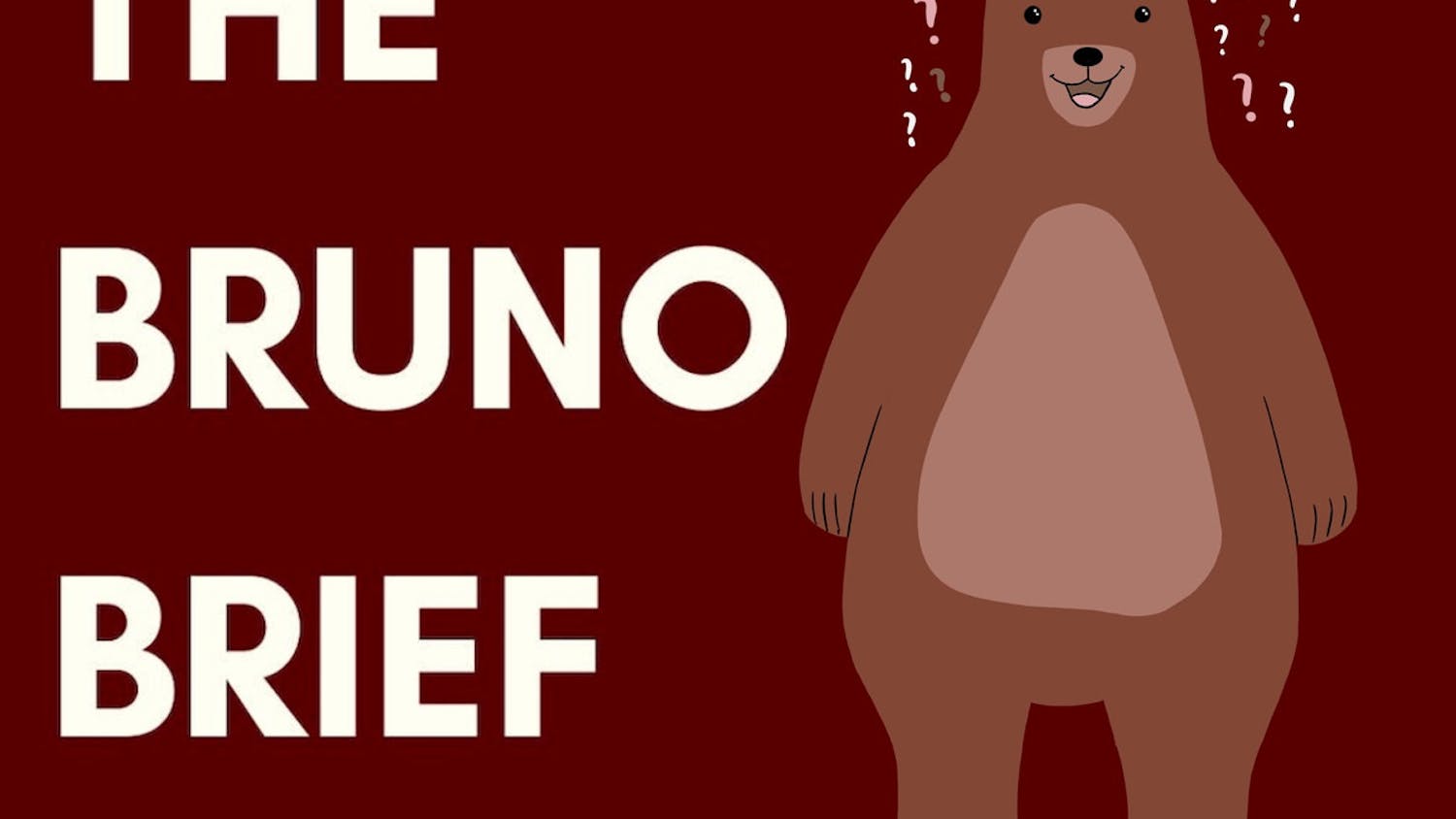Ferdinand Jones, an accomplished professor emeritus of psychology at the University and a pioneer of the mental health services that eventually became Counseling and Psychological Services, died Sept. 10 at age 90.
Born and raised in New York City, Jones is survived by his partner Belinda Johnson, brother Arthur, daughters Joanne Jones-Rizzi and Terrie Jones, granddaughter Zora Jones Rizzi and his great-grandsons Wilder and Sy.
During his time at Brown, Jones earned a reputation as a gentle, selfless and innovative professor who spearheaded access to mental health care for students and staff. Joining the University in 1972, Jones split his time between teaching students psychology and putting his knowledge into practice through clinical work with countless students.
When the Department of Psychological Services — now known as CAPS — was created in 1980, Jones was announced as its first director. Jones is also remembered for his work in establishing several psychology courses that encouraged students to consider broader sociological themes that contextualize human thought and behavior.
Since his passing, The Herald has spoken with several of Jones’ friends and colleagues, who described his remarkable career as well as his lasting legacy of kindness, support and an unwavering commitment to ensuring the wellbeing of every community he was a part of.
Making wellness an institutional priority
When Sheila Blumstein, professor emerita of cognitive, linguistic and psychological sciences, learned that she would share her post-retirement University office with Jones, she was “over the moon happy.”
Blumstein arrived at Brown just two years prior to Jones and spent much of her career in his orbit. Jones was hired by then-University President Howard Swearer “to start a psychological services department that had its goals shaped around servicing students to work with their mental health and help in any way,” Blumstein said.
Jones’s career within the University is best summarized as “a long list of firsts,” she said.
“Ferd was the first with psych services … interested in the health and wellbeing of individuals, but also the community — and that broad view really made him so effective,” she said.
According to Belinda Johnson, Jones’s successor as director of Psychological Services, “Ferd had this view of CAPS as having a responsibility for the positive functioning of the whole University. This is not so unusual now but, back then, it was quite unusual.”
According to Johnson, Jones noticed students feeling isolated and thought, “What can we do to minimize problems that are foreseeable?” He catered programming in service of that goal, Johnson said.
Johnson, who reunited with Jones once they were no longer colleagues, said that she felt “fortunate” for the pair’s connection. “For the last 16 years of his life, we were a couple. It was a happy and precious time for both of us,” she said.
‘The kind of pioneer who wouldn’t even think that he was a pioneer’: Psychology as an intersectional study
Jones viewed psychology as a multifaceted study influenced by various disciplines and infinite personal circumstances. This view, Blumstein said, was evident in his development of psychology courses that examined the study in connection to other fields, including “Cultural Mistrust,” “The Cultural Context of Psychotherapy” and “Human Resilience.”
Blumstein said these courses were successful at encouraging students to think about psychology with a broader scope.
Jones especially stood out in the field for his observations on psychology through a multicultural lens, Blumstein said. Jones hoped to cultivate resources for all people, everywhere.
“This reflected a lot of his values,” she added.
Blumstein reflected on the impact Jones made at Boston University too, noting his involvement in the school’s Center for Multicultural Training in Psychology, which “provide(s) training, support and clinical services in the culturally competent practice of community-based mental health services and inpatient services,” according to the center’s website. It also hosts a clinical psychology internship program training psychologists to work with racially and ethnically diverse patients.
“Putting mental health care all into a program that … could ultimately train people or teach people to then effectively work with other people,” she said, was “a culmination of everything that he did.”
Blumstein remembers Jones loving his trips to Boston to work as director of the program, noting that Jones was especially appreciative to work with “these folks who are committed with him.”
“One of the issues … for Brown was that there weren’t a lot of people with whom he could work on” culturally informed psychology practices, she added.
“He was the kind of pioneer who wouldn’t even think that he was a pioneer,” she explained. “He was a gentle soul. He really lived and did what he believed.”
Jones was “very active in the connection between mental health and social justice,” Johnson explained.
She described a program Jones helped lead where people of many different races would get together “to talk about their commonality and their differences and come to understandings of one another from that experience.”
“It sounds simple-minded now but was very much not in those days,” she added.
Supporting Black students and fostering community
John Robinson ’67, a former associate dean of the College and associate director of admission, worked alongside Jones. Robinson told The Herald that when he attended Brown, the University “had graduated fewer than 100 Black students in over 200 years.”
Having grown up attending integrated schools where positions of power were almost completely occupied by white people, Robinson said that the support Jones extended to Black students at Brown was particularly impactful.
“In essence, there were no Black faculty, no Black staff, no Black counselors, no Black advisors,” he said. “There was no Black anything. I used to go down to the bar and have a beer or two just to be around some other people with dark skin.”
After graduating, Robinson later returned to the University as a faculty member. He and Jones worked together to develop the minority peer counseling program and the Third World Center — now known as the Brown Center for Students of Color — to create formal and informal infrastructure to advise students of color.
Robinson shared that Jones “provided an antidote” for Black students experiencing isolation at Brown through individual counseling sessions and a weekly group meeting for Black students involved with the Program in Liberal Medical Education.
“These were all highly talented students,” he said. “Highly motivated and very driven. And Ferd would meet with them as a group to talk about the pressures they were experiencing … being part of the Black community of Brown.”
“Much of what Ferd did was help students gain their grounding by providing an opportunity for them to confide in someone who understood their environment and what they were going through,” Robinson added. Jones was “the difference between being successful or crashing and burning for many, many students,” Robinson said, noting that his work spanned “literally a couple generations of Black students.”
“We’ll never know just how many,” Robinson said.
Jones felt gratitude toward the students as well. Johnson said that Jones “would always say that he was indebted” to Black students who advocated for increased diversity among faculty.
“It was Black students who put a lot of pressure on the administration to bring in more faculty of color, and he always felt that he wouldn’t have been here had students not put the pressure on.”
Providing care with empathy
“I can say, without question, in all the years that I’ve known him, Ferd was the kindest colleague I’ve ever had,” Robinson said. “He had a place in his heart for everyone.”
Robinson recalled an instance when he was dean of student life wherein Jones proved vital in providing much-needed support to a student in severe psychological distress.
“We had a student who … hadn’t slept in days and needed to be hospitalized,” he said. “I remember we were literally looking for him, tracked him down and he was near the Sciences Library.”
“Ferd was trying to talk to him, and the rest of us were standing around trying to contain the situation,” Robinson said. The student was resistant to receiving treatment, which meant that opportunities for intervention and mental health care were limited. Under Rhode Island law, a patient is required to pose a risk of “serious harm” before a court can place them in the custody of a hospital or mental health facility.
“Ferd then got close to him, and the student hit Ferd on the head, kind of like a karate chop. And that’s the point at which security could come and take him to the mental hospital for treatment.”
Jones “put himself in harm’s way so the student could do something actionable. You can’t put people in a hospital for saying things that don’t make sense,” Robinson said. “The student had assaulted him, but it was for the student’s own good that Ferd allowed himself to be hit.”
Robinson added that, after undergoing treatment and stabilizing, the student returned to thank Jones.
Blumstein recalled Jones’ role as an advocate for students in another instance where a student was struggling psychologically.
“There was an issue with a student who came in to see me … with severe mental health issues,” Blumstein said. She explained that she did not feel equipped to support this student alone, so she turned to Jones.
“I made a plan with the ultimate goal of getting him to see Ferd, and we did that as a team. I met the student again and was able to convince him that he should see Ferd,” Blumstein continued. “Ferd was able to get this person the help that he needed.”
“He helped that young man, that young person, live.”
According to Johnson, Jones’ impact was well-known across the University.
“Before I took over as director, I was associate director, and one of my jobs was to monitor appointment availability for students, and it was always an issue,” Johnson said. “Students really did not want to wait — except if it was an appointment with Ferd. They would wait weeks, sometimes even a month, but they didn’t care. They wanted to see him.”
“And that really said something,” Johnson said. “Because that wasn’t true for the other clinicians.”
‘A gentle soul’: Kindness and counsel for all
Johnson also shared that Jones implemented morning meetings at CAPS at the start of each work day to check in with staff.
“It might sound like a small thing, but it was really big,” she said. “Everybody felt supported.”
One year, at the CAPS end-of-semester staff potluck, Jones brought in a jazz trio for the team’s entertainment. Although there were only seven people at the dinner, Jones wanted his company to be entertained and took it as an opportunity to support the local jazz community, Johnson recalled.
Robinson remembered Jones being “a counselor available to everybody.”
“I know staff members used to love to have lunch with him because they thought they’d get some free counseling,” he joked. “I always appreciated his wise counsel, which was never failing.”
Robinson characterized Jones as “the kind of person on the positive side of humanity.”
“He wouldn’t always give you what you asked for, but he always gave you what you needed,” he said.
Blumstein expressed a similar sentiment, noting that when Jones walked into a room, “the temperature would just go down.”
“He was just so grounding and a gentle soul,” she said. “He was always a presence you wanted there. He was thoughtful and smart and had a way about him that was so wonderful with people.”

Sofia Barnett is a University News editor overseeing the faculty and higher education beat. She is a junior from Texas studying history and English nonfiction and enjoys freelancing in her free time.





